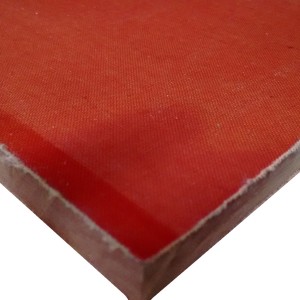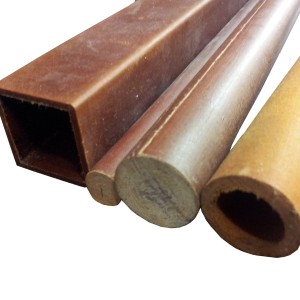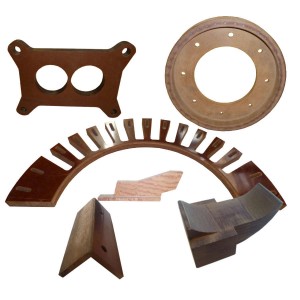‘Bakelite’ is a name that is commonly used to refer to a family of fully synthetic plastics that were first invented by Leo Baekeland back in 1907. The common feature with all these materials is that they are formed by a condensation reaction of phenol with formaldehyde resulting in a thermosetting resin which is then mixed with a variety of filler materials and cured.
Due to the range of fillers available, there are several varieties of Bakelite’s on the market each with their own unique properties. Generally though, all types and styles have good mechanical strength are resistant to elevated temperatures and provide good insulation against electrical current.
A brief history of Bakelite
At the time, a number of Chemist’s were experimenting with phenol and formaldehyde combinations without much success, but Baekeland developed a combination that when subjected to heat and pressure in an apparatus known as a “bakelizer” was insoluble in all solvents and did not soften. He called it Bakelite.
Bakelite became the first fully synthetic plastic ever produced and almost immediately it’s potential began to be realized. It was cheaper than existing products such as celluloid and could be molded quickly. This saw it used for a wide range of products suitable for mass production including jewellery, handles, telephones and even firearm parts.
Bakelites resistance to electricity, heat and chemicals also made it particularly suitable for use in the electrical and automotive industry where it was used for all non-conductive parts in electrical components, switchboards, radios and other insulators.
WHERE IS BAKELITE MAINLY USED TODAY?
These days most if not all of the decorative applications for Bakelite have ceased and products made from this material are increasingly being transformed into antiques and collectors items that carry high value. There are however a few companies left who are still manufacturing Bakelite products, for use in applications requiring resistance to heat, electricity and chemicals. Some of these applications include:
– Electrical components such as switchboards, panels and sockets for light bulbs.
– Automotive distributor caps and insulators
– Toys and game pieces for board games
– As protection against mechanical ware
– In many electrical engineering applications
Synthetic Resin Bonded Fabric (SRBF)
Fabric Bakelite

SRBF, otherwise known as fabric Bakelite employs layers of cotton cloth as a filler which gives the material increased mechanical strength. It can also handle higher temperatures than other available grades and is offered in both natural brown (SRBF-N) and black (SRBF-B) colour options.
Click here to find out more
Synthetic Resin Bonded Paper (SRBP)
Paper Bakelite

SRBP is also referred to as paper Bakelite due to it’s filler material which is a paper or pulp type material. This economical grade can be used in applications where temperatures reach up to 115ºC and provides good insulation from electrical current. SRBP is also available from AG in a natural brown colour (SRBP-N) or in black (SRBP-B)
Click here to find out more
Bakelite Tube, Rod and Pultrusions

AG also stocks both SRBF and SRBP Bakelite in tube and rod form. Available in a range of different sizes, these tubes can also be easily machined to form long lasting isolating sleeves, washers, bushes, spaces or line guides.
Click here to find out more about SRBF Rod
Click here to find out more about SRBF Tube
Click here to find out more about SRBP Tube
Custom Fabricated Bakelite Parts

AG’s production staff have enormous experience producing custom fabricated components. Not only do we have the machinery and facilities to do the job, we can reproduce custom parts from a sample or develop a prototype right from scratch.
Get in contact with us to find out how we can help you.
WANT TO LEARN MORE?
Bakelite is just one of the many types of rigid insulation materials we stock here at AG. Like our Bakelite sheet, many of these can be supplied in various forms or cut / machined to suit your required.
For more information about the available types, styles and sizes, or to discuss whether this economical and versatile material will be suitable for your application, please contact your local Associated Gaskets.
